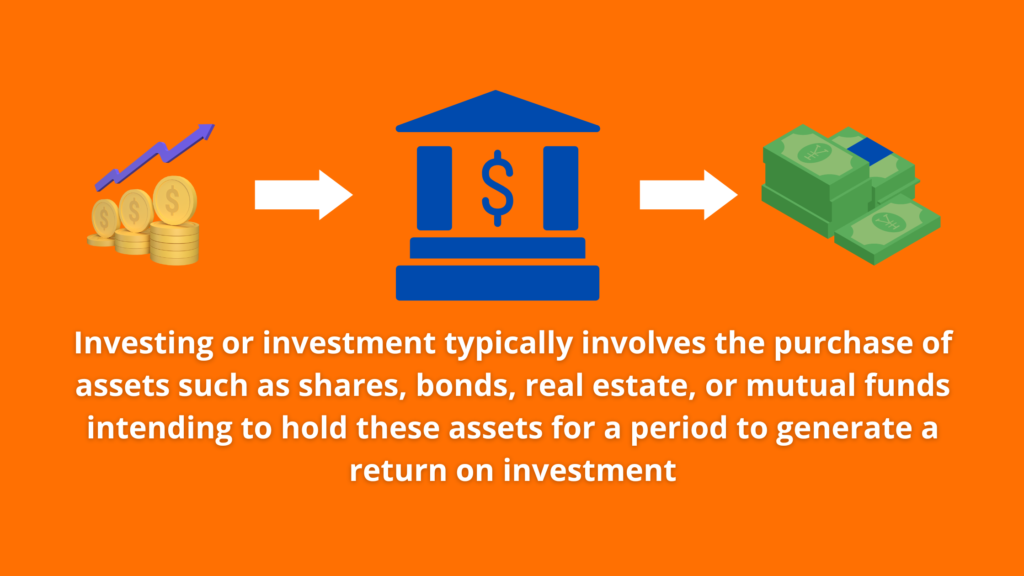The female investing experience has evolved over the last few years and with that, there is a growing number of women who are now investing as men do. In this guide, you will learn what is being done right now by companies that are helping women become successful investors by providing technical analysis courses and opportunities. As someone who is just starting out, this post will provide you with all the tools required to start your journey in investing with confidence!
Investing is an essential part of any woman’s financial plan and planning. Investing can give women the opportunity to establish a nest egg for the future, especially when there are few financial options available to them today. The start of women’s ladder is the biggest challenge they face in their investment journey. This post guides women through this path and helps them know how to take that first step towards becoming a successful investor.
Why Should Women Start Investing?
The reason we should make women start investing early is quite obvious. But the primary benefit for women is the fact that investing can help you earn more money and more wealth so that you’ll be able to shut off their future financial needs from another person’s wallet by yourself. Women should start investing early in life for a number of reasons. First, investing is good for their long-term financial health and security. Second, women typically have less wealth and assets than men do at the same age.
Women should start investing in their retirement savings because it is a smart move for their finances. For example, you might save more money investing than if you were set on a 4% savings account at some point in your career. You also might get higher interest rates with bonds that invest in lower-risk investments like corporate bonds and municipal bonds. Women can invest in their retirement by learning more about stocks and bonds and diversifying their portfolios. It’s not always easy to become a professional investor, but it doesn’t have to be complicated.
When Should Women Start Investing?
Many people think that women should wait until they are married to start investing, but the truth is that many women already know how to invest. Whether it’s through a trust fund, employer-sponsored retirement plan, or simply day trading stocks online with a personal investment account, a woman can achieve financial independence and start investing sooner rather than later. That can make it challenging to know what type of investments to pick when to buy them, and how much you should put in each account.
But understanding why it’s important to start early, and how to do it correctly, can be difficult for many beginners. With that in mind, we go over everything from what kinds of accounts you should open to your goals and the best way to build an investment portfolio. Some financial experts suggest that women should start investing as early as age 18. Others advise waiting until you’re in your mid-20s and even later if you’re buying individual stocks — but only if you can afford it. Women can start investing as soon as they want. The earlier you start, the more you can learn and the more chance you have to overcome risks that can delay your goals. Once you get started, though, it gets easier every time. You can even take help from an investment advisory.
What type of Investments works for Women and Why?
Women investors can choose different types of investments to help them meet their financial goals. By investing in stocks and bonds, women can receive regular payment checks each month, as well as potential returns on their investments. Women’s portfolios are more varied, more balanced, and less sensitive to market performances than men’s. It is not so much the difference in investing the money but rather how the investment dollars are invested. Understanding these issues can help you to identify other important factors that impact your retirement planning.
An investment portfolio has many components and nuances, including how they are invested, what risks they carry, and how the market performs over time. It’s critical that women understand the differences in their own investing needs – so that they can make investment decisions that suit them best.
Investing for women can be a difficult task because most financial advisors aren’t familiar with gender-specific financial concepts. Women are often encouraged to balance spending and saving, which is fine advice, but there’s more than one way to make your money work better. For example, I recommend you skip the traditional “save 25% of every paycheck” advice in favor of a more flexible system, and instead aim for 4%-5% of your net monthly income.
Instead, find the best index funds with low fees or invest through a financial advisor. A woman’s approach to investments can be very different from how a man approaches them. There are numerous factors that affect women’s ability to achieve the same results in their investments as men. Women, in general, have a lower appetite for risk than men. Given this difference in risk tolerance, women should generally focus more on dividend-paying stocks than growth stocks. The goal should be to find stocks that produce juicy dividends and that come with low-interest rates so you can get more back when your money is invested.
Ideal investment options for women:
- Mutual funds
- Exchange-traded funds (ETFs)
- Stocks
- U.S. Equities
Conclusion
Do women need to worry more about the risk of investment? Not necessarily. The main point of this article is that women should be aware of their markets, but don’t worry so much. Women are the primary financial decision-makers for the majority of their families and this is largely due to their greater personal time commitment, an unwillingness to take on additional responsibilities, and a greater risk aversion when compared to men.
Women should invest in any business that they feel confident in. A good start is to decide on a specific type of investment, whether it is stocks or bonds. Then, choose the type of asset you would like to purchase so that you can clearly understand the risks involved with investing. Once you make your choice, review your financial situation and take stock of what is working well for you so that you are prepared for any upcoming events that might alter the plan.

Pardeep is the founder and editor of Small Investment Ideas. He believes that everyone can change their life with the help of small investments and achieve financial freedom.


